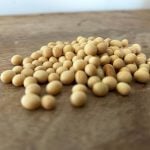Canada’s cattle producers will get a new beef industry code of practice to guide their on-farm operations. The revised code, expected in 2013, will replace the existing one which dates back to 1991. The process will bring together producers, humane societies, scientists, veterinarians, transporters, government representatives and food industry officials to develop voluntary guidelines for



